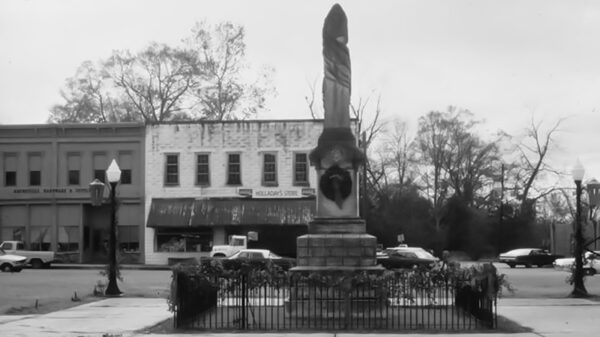The story was a good one — a little slice of bipartisanship in the Alabama Legislature this past session. Republican and Democrats. Whites and Blacks. Coming together to at least try to listen to each other.
It was published on al.com over the weekend and written by Roy S. Johnson and Cameron Smith. It was a good story, detailing a church meeting between a handful of lawmakers from both sides of the aisle to discuss the George Floyd murder and resulting protests across the nation.
The two sides talked about the underlying causes of those protests and about the decades of racism and bigotry that has left Black Americans so angry and determined to force change that should have happened long ago. The Black lawmakers present, including House Minority Leader Anthony Daniels, said they genuinely felt the talks were productive and well-intentioned. They discussed forming a sort of secret bond, and ushering through bipartisan bills.
It was a rare moment of honest interaction and genuine compassion in Alabama. The Republicans who participated seemed genuinely concerned that they were oblivious to the pain and suffering of their Black neighbors, and they wanted to know more. That’s never, ever a bad thing.
Now, I could quibble with the notion that anything really changed from a legislative standpoint — ALGOP lawmakers still shot down all but one police reform bill, prevented an overwhelming majority of Dem-sponsored bills from even getting committee assignments, were a ticked-off Republican senator away from passing a blatantly racist anti-riot bill and still tried to strengthen the bill protecting Confederate monuments — but that’s not how the people who were actually involved felt. And if they felt like something changed, so be it. Maybe it did.
And maybe it will lead to bigger changes in the future.
But I have my doubts. Let me tell you why.
In that story, one of the primary examples cited to demonstrate the lack of understanding that many white conservatives have about the issues and racism facing the Black community was the story of how one Republican lawmaker present at the meeting didn’t know what redlining was.
Seriously. Had never heard of redlining.
If you, too, are unfamiliar with the practice, it is, to put it broadly, the systematic denial of services — most commonly financial services related to home buying or lending for improvements in certain neighborhoods — to Blacks and other minorities.
The term has been around for more than 50 years now, and the practice — which has been around since the first day a Black American could own property — has kept Black families locked into poor neighborhoods and has prevented Black-owned businesses from receiving the same sort of financing and opportunities that allow white-owned businesses to expand and grow.
And before you start thinking that this poor gentleman wasn’t aware of some long-stamped-out practice that doesn’t exist anymore, an investigation in 2018 by the Center for Investigative Reporting documented disturbing lending denials of Black applicants by America’s top banks, even when controlled for income, loan amount and credit score.
Black applicants were nearly three times more likely to be turned down as white applicants.
One of the cities where this modern-day redlining was the worst? Mobile.
It was one of many reasons that Black families, on average, according to the U.S. Census Bureau, had a net worth of just $9,000. White families — $132,000.
So, you see here the real-world results of systemic, state-sanctioned racism. A practice that deprived entire generations of minority families equal opportunities to achieve the American Dream.
Now, hold that thought and remember that the Republican participants at that meeting were shocked to learn of this redlining practice.
Over the last few months, Republicans from every level of government have been whining and complaining about what?
Critical Race Theory.
The study of the way ingrained, systemic racism in America’s social institutions and government services has helped shape the country and leave many people of color with a much tougher hill to climb.
Racism like, say, systematically denying Black applicants a home loan, or ensuring that certain neighborhoods remain overwhelmingly white, or refusing to offer business loans in Black neighborhoods.
You see what I’m getting at?
At that meeting were a handful of guys who were genuinely concerned about the injustices facing their friends. They wanted to understand more. They wanted to know if they could do more.
And while that’s great, what about the Republicans who weren’t there? Who don’t really care? Who keep pushing Confederate monument bills? Who sponsored, supported and voted for a blatantly racist anti-riot bill?
If the Republicans at that meeting don’t know what redlining was, what do these other Republicans not know?
See, that’s why I have my doubts that anything will change. Because even after all of the protests and all of the stories and all of the media attention in the wake of the Floyd murder — even as their fellow Republicans were so troubled by what was happening they reached out to their Black colleagues to learn more — the rest of the Alabama Republican Party said it didn’t know, doesn’t want to know and doesn’t want their kids to know either.
The simple fact is the only way we’re ever going to fix our racial divide in this state, or in the country for that matter, is through education — through the proper teaching of history that gives people a clearer understanding of the American experience from different perspectives.
One group of Republicans in this state decided they wanted that. I have serious doubts that any others will join them.
Prove me wrong.



















































